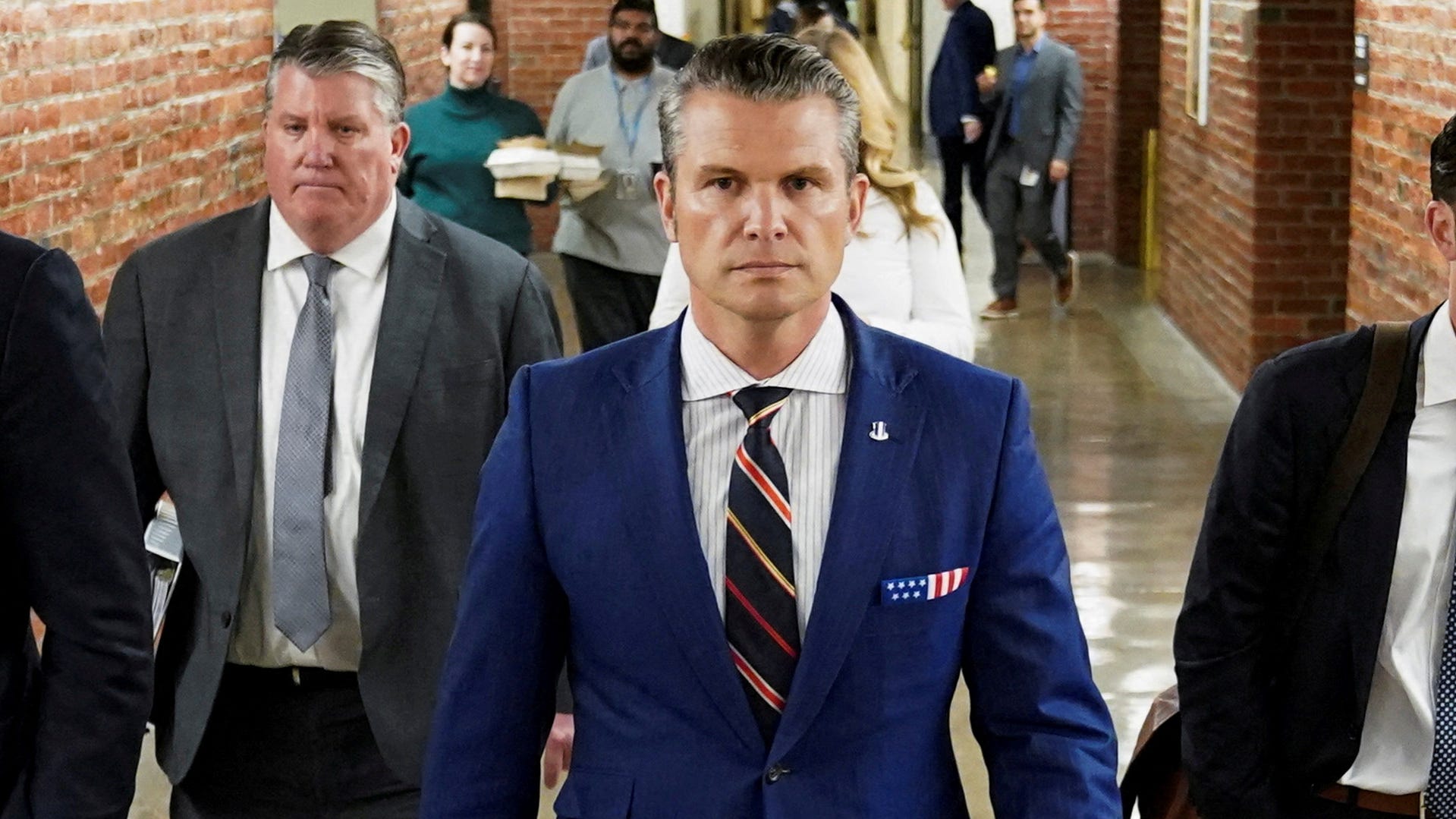Trump wants to stack his Cabinet with men like Hegseth. Is #MeToo history? | Opinion
Donald Trump has inadvertently pushed our culture to the point where it might finally change for good. We'll make sure of it.

In six days, Donald Trump, an adjudicated sexual assailant, will take the oath of office as the 47th president of the United States.
If Trump has his way, his Cabinet will be stacked with men and women with troubling personal histories. Pete Hegseth, Trump’s nominee for secretary of Defense whose confirmation hearing is Tuesday, has admitted to using a nondisclosure agreement to cover up a rape allegation.
Robert F. Kennedy Jr., his nominee for secretary of Health and Human Services, has been accused of sexual assault by a woman who babysat his children.
Linda McMahon, his nominee for secretary of Education, has been accused in a lawsuit of enabling the sexual abuse of boys who worked for her and her husband, Vince (who has himself been accused of sexual misconduct), when they ran the World Wrestling Entertainment.
To add insult to injury, recently news broke that former Fox News host Bill O’Reilly, widely believed to be a rampant sexual predator, sat in on a Trump Cabinet meeting at his Mar-a-Lago estate in Palm Beach, Florida. O’Reilly has been accused by six women of sexual harassment and recently forced one of the women into the secret chamber of arbitration to keep her gagged about what he allegedly did to her.
We've lost the momentum that women – and lawmakers – worked so hard to build
It would appear that we are far removed from the early days of the #MeToo movement, which we helped ignite when we filed lawsuits against Fox News and its then-chairman and CEO Roger Ailes, respectively. Our lawsuits launched a conversation about workplace sexual misconduct, which inspired other women to come forward about predatory behavior.
While the biggest names, like Harvey Weinstein, have garnered the most attention, we hear from women on an almost daily basis who share horrific stories about how their lives and careers have been destroyed simply because they had the misfortune of working for or with a predator.
It was not just women who noticed that something had to change. Over the past several years, Congress took action, working with us to pass bipartisan legislation that eradicates forced arbitration and pre-dispute nondisclosure agreements for sexual misconduct.
Removing these silencing mechanisms through the Ending Forced Arbitration of Sexual Assault and Sexual Harassment Act and the Speak Out Act has been critical to giving survivors their voices back and empowering them to take a stand against their predators and the workplaces attempting to silence them. The passage of legislation is at the heart of the #MeToo movement, rebalancing the scales of justice between abusers in power and survivors.
As we have consistently told legislators and corporate stakeholders, this movement is not going away, so it would be easier for them just to get on the right side of history.
Does Trump's election mean #MeToo movement is history?
With Trump’s reelection, the biggest question we are now asked is whether the #MeToo movement itself is history. After all, if the majority of Americans still voted for him despite knowing about his mistreatment of women, it would stand to reason that all the progress women have made over the past eight years has finally ground to a halt.
The opposite is true.
After Trump’s first presidential election, advocates mobilized to move the needle forward at both the state and federal levels to protect women in the workplace from misconduct.
It took us six years to pass the Ending Forced Arbitration of Sexual Assault and Sexual Harassment Act, but the work on this law began during Trump’s first campaign.
In the wake of a sexual assault scandal on Gov. Phil Murphy’s watch, New Jersey in 2019 became the first state in the nation to pass a law banning nondisclosure agreements for all toxic workplace issues.
Other states, like California and Washington, soon followed, spurred on by local stories of workplace abuse. It is important to remember that all these efforts began during Trump’s last stint in the White House.
History is not always a linear progression. Changing laws to protect women in the workplace during the most politically polarized time in memory is difficult, but changing culture is harder still. The impetus for real and meaningful change comes when society has reached a breaking point.
It could be that in his selection of accused sexual predators to lead our nation, Trump has inadvertently pushed our culture to the point where it might finally change for good. We’ll make sure of it.
Gretchen Carlson and Julie Roginsky are the co-founders of Lift Our Voices, an organization dedicated to eradicating silencing mechanisms in the workplace.